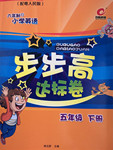题目内容
【题目】单句语法填空
【1】We are very impressed __________ the standard of the children’s works.
【2】Don’t instruct your secretary __________(say) you are out when you are in.
【3】I appreciate __________(give) the opportunity to work in your company two years ago.
【4】With its focus __________(divide), the lion becomes confused and is unsure about what to do next.
【5】She took __________ after appearing in the Voice of China.
【6】With the help of experienced career instructors, this type of job-hunting training _______ (prove) to be very efficient so far.
【7】A certain percentage of your salary is kept ______ by the employer as an insurance payment.
【8】You’d sound a lot more polite if you make a request__________the form of a question.
【9】A team, __________(consist) of two doctors and three policemen, was sent to search for the lost explorers.
【10】__________(design) for children, the album became popular with parents immediately it came out.
【答案】
【1】with/ by
【2】to say
【3】being given
【4】divided
【5】off
【6】has proved
【7】back
【8】in
【9】consisting
【10】Designed
【解析】
本题考查单句语法填空。主要从短语、非谓语动词、时态等语法方面考虑。
【1】考查短语。短语be impressed with/ by对……印象深刻。句意:这些儿童作品水平之高,给我们留下了深刻印象。故填with/ by。
【2】考查短语。短语instruct sb to do sth教导某人做某事。句意:不要教你的秘书在你在的时候说不在。故填to say。
【3】考查短语。短语appreciate doing sth.感激做某事。主语I与give之间为被动关系,故用被动关系。句意:我很感谢两年前被给予这个机会在你公司里工作。故填being given。
【4】考查非谓语动词。句中宾语its focus与宾语补足语divide之间为被动关系,故用过去分词作宾补。句意:注意力分散了,狮子变得迷惑了,不知道下一步该怎么办。故填divided。
【5】考查短语。短语take off事业腾飞。句意:她出现在《中国之声》之后,事业开始腾飞起来。故填off。
【6】考查时态。根据句中时间状语so far可知,用现在完成时。句意:经过有经验的职业指导师的帮助,到目前为止,这种寻找工作的培训被证实是十分有效的。故填has proved。
【7】考查短语。短语keep back保留。句意:雇主扣下你部分薪金作保险金用。故填back。
【8】考查短语。短语in the form of以……形式。句意:如果你以一个问题的形式请求,你会听起来更有礼貌些。故填in。
【9】考查短语。短语consist of由……组成。 team与consist of是逻辑上的主谓关系,故此处用动词ing形式作定语。句意:一个由两名医生和三名警察组成的小组被派去寻找失踪的探险者。故填consisting。
【10】考查短语。短语:be designed for“为….设计的”。该类短语做定语或者状语时,去掉be动词。句意:这个唱片是为儿童们设计的,它一发行就受到了家长的欢迎。故填Designed。

 步步高达标卷系列答案
步步高达标卷系列答案